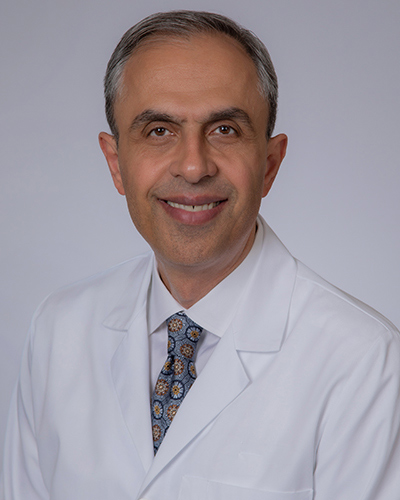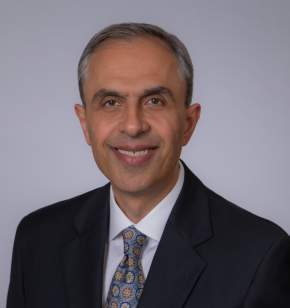Overview of Second Opinion Logistics


Seeking a second opinion can be overwhelming, requiring you to navigate a complex and unfamiliar healthcare system. In this series of articles, we will provide you with information about the process of seeking a second opinion, including how it works with insurance, what typically happens during a visit, and how you should prepare for your appointment. In this summary article, we outline the articles in this series and encourage you to visit the links for more information.
Insurance Coverage for Second and Third Opinions
When obtaining a second opinion it is important to consider the financial implications and if you have insurance coverage for second and third opinions. Patients may decide to obtain a second opinion about their care to be more confident in their decision or to find a treatment plan that better aligns with their goals. Whatever your reason may be for seeking a second opinion, it is important to understand how the process works.
Obtaining a second opinion requires a referral from your current specialist or from your primary care physician. These doctors can forward your medical records to the new physician so that he or she can be best informed when providing an opinion. Patients are often nervous to ask for a second opinion for the fear that they will offend their current doctor. It is important to recognize that asking for a second opinion is common and that your physician will be supportive of you.
Unfortunately, medical care is often expensive, and it is important to make sure that obtaining a second opinion is covered by your insurance or is financially feasible. Insurance companies will typically have policies about which types of diagnosis warrant a second opinion and which do not. It is important to understand these policies in advance to avoid out-of-pocket medical bills. After a second opinion, a third opinion may be necessary. Again, it is important to get in touch with your insurance company to see if this will be covered by insurance.

What Happens in a Second Opinion?
Patients often have questions about when they should get a second opinion and what happens in a second opinion visit. Once referred for a second opinion, it is essential to make sure that the new physician has all your records so that they can provide an informed opinion. These may be sent over by your referring and/or primary care physician.
Second opinion visits are often very similar to your first visit where your physician asks you questions about your symptoms and examines you. In addition to the interview and physical exam, the new physician will often ask you about the opinion of your first doctor, what your concerns are with their conclusions, and why you are seeking a second opinion. These additional questions will help the second physician better address your goals and concerns.
Oftentimes, this second opinion may be similar or identical to that of your first doctor. However, in some instances, it may be different. This does not necessarily mean that the first physician is wrong. Different opinions can be based on variations in training or professional experience. The value of having two opinions is that you can decide on which treatment plan best aligns with your health goals. A third opinion may be rarely needed to finalize your treatment decisions.
Why should you have your surgery with Dr. Cohen?
Dr. Cohen
- 7,500+ specialized surgeries performed by your chosen surgeon
- More personalized care
- Extensive experience = higher success rate and quicker recovery times
Major Health Centers
- No control over choosing the surgeon caring for you
- One-size-fits-all care
- Less specialization
For more reasons, please click here.
What to Ask in a Neurosurgical Second Opinion?
Patients often have questions about what to ask in a neurosurgical second opinion visit. People seek a second opinion for many different reasons, and it is crucial to be able to explain what your concerns are following your first visit. Come prepared with questions you may have about your diagnosis or treatment plan. You can write these questions down and bring them with you to your appointment. While preparing for a second opinion visit may be tedious, it is crucial to getting the most value out of your appointment.
Your questions should be tailored to the reason you are seeking a second opinion. If your concern is that the first treatment plan does not align with your health goals, it is important to ask your second doctor what their opinion is of the first doctor’s proposed plan and if they have any different options. Alternatively, you may be seeking a doctor who has more experience in dealing with your illness. If this is the case, important questions may be about the extent of the new physician’s training and how often they treat patients with a similar disease. Whatever your reason for getting a second opinion, it is important to be prepared and advocate for yourself.
Asking for a second opinion can be overwhelming especially when faced with an already difficult diagnosis. Please try to understand how a second opinion visit works and to come prepared with questions and concerns so that you can get the most out of your second-opinion visit.
Key Takeaways
- Please research and contact your health insurance to see if it will cover a second opinion visit. Policies can vary based on the diagnosis so you must do your research to determine if you are covered.
- During a second opinion visit, your doctor will evaluate you in a similar way to the first doctor you saw. In addition, they will oftentimes ask you what your concerns are with your first visit, so it is important to come prepared and be transparent.
- Prior to your second opinion visit, prepare any questions and concerns you may have so that you can get the most out of your visit.











